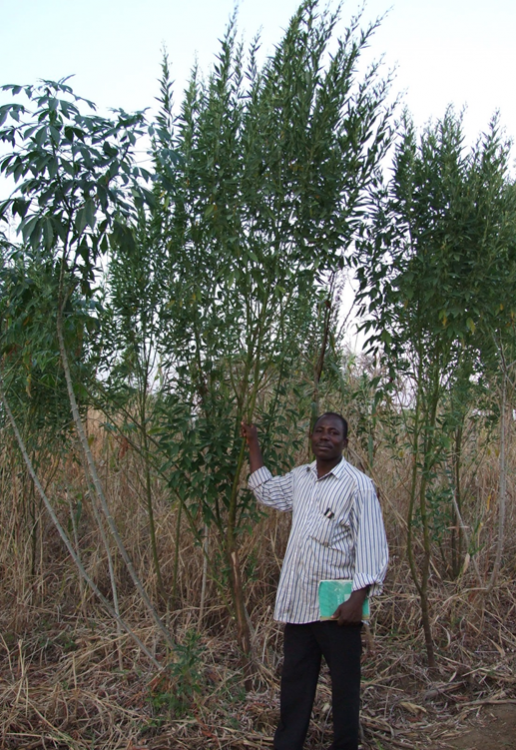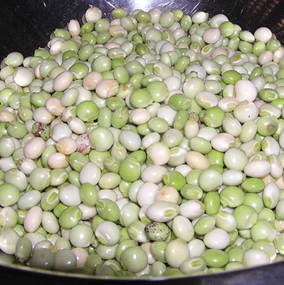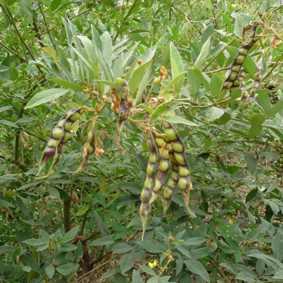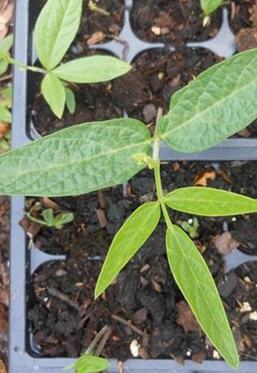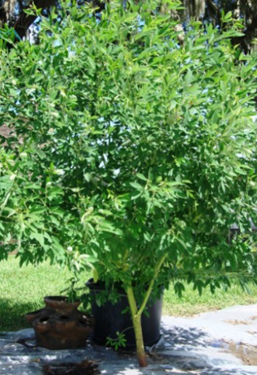Pigeon pea - Cajanus cajan
Description and Uses
Cajanus cajan (Pigeon pea) is a tropical shrub from South India. It is mainly grown for its nut crops (long shelflife), but also Other uses include; fertilization, fodder, fuel, mulch and nut can be produced. The crop is harvested by mechanic. It starts flowering after 0 - 1 years. The first yield will be 0.8 kg/plant but in its top season there will be a yield of 75 kg/ha/yr N-fix. The seed/nut is edible. Medical uses include; it is medically used as anti-arthritic activity. The seed/nut contains proteins (21 - 22.5). There is pigeon pea oil extracted by steam distillation from the shrub`s seed/nut yielding 1.3 - 2% oil. The shrub`s wood is called pigeon pea sticks and has a density of 450 - 600 kg/m³. Regarding firewood production the shrub`s growing speed is very fast, its energetic value is 4800 ckal/kg and the wood`s drying speed is medium; for firewood production it is not ideal. After 1 years the shrub can be totally removed as it reached its commercial and ecological goal. Cajanus cajan has a lifespan of 4 years.
Environmental limitations
The shrub is 4 meters tall. It is very fast growing and tolerates not less light than full sun. Cajanus cajan has a deep root-system and forms symbiotic relations Glomus constrictum,Glomus epigaeum,Glomus fasciculatum,Glomus fulvum,Glomus hoi,Glomus intraradices,Glomus macrocarpum,Glomus mosseae (endo-mycorrhiza high). It is able to fix nitrogen with Bradyrhizobiaceae bacteria. The shrub`s flower-morphology is hermaphroditic and is pollinated by bees. Cajanus cajan is deciduous in dry season and not allelopathic and has no thorns.
Cajanus cajan thrives in an altitude of 0 to 2000 meters above sea-level (tropical). The minimum temperature is 3°C and optimally between 18 - 38°C. The optimal rainfall is 1650 mm/year. Without irrigation the annual rainfall should be between 400 - 2500 mm (L/m²). The optimal soil-pH is between 5.0 - 7.0 in a soil texture of loam. To salt it is a bit tolerant to wind a bit tolerant and to fire a bit tolerant.
Pests and Diseases
is susceptible to Agromyza as pest and Anthracnose,Cercospora leaf spot,Collar rot,Damping off,Fusarium wilt,Powdery mildew,Rust diseases.
Seed Propagation
Seeds are orthodox and can be stored for 1 months. There are approximative 17000 seeds/kg. The seeds can be propagated as followed: (1) Store harvested seeds dry at room temperature, (3) Remove the seeds from cold to a permanent warm temperature., (3) Seeds germinate above ground (epigeous)
